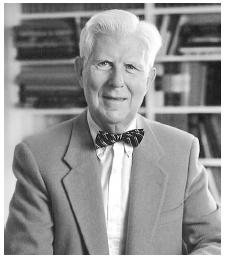Cognitive Behavioral TherapyCounseling with Cognitive Behavioral therapy arose out of the need to combine two of the most powerful forms of therapy: Cognitive Therapy originating from the theories and research of Dr. Aaron Beck, and Behavioral Therapy born through the research and theories of Dr. B.F. Skinner. Though Albert Ellis is considered to be the founder of Cognitive Behavioral Therapy, it is the early efforts of these researchers that paved the path for this wonderful branch of psychotherapy.
What is Cognitive Therapy? Counseling with this type of therapy employs the most crucial mechanism of all, your mind. More specifically, this type of therapy recognizes the importance of making important associations between the mind governing your thoughts, your emotions, and the way you behave. To be clear... Cognitive Therapy recognizes a cycle with which human behavior is characterized. The cycle begins with your mind. So we believe that your mind will generate thoughts about the world, your place in it, and the things that happen around you. In response, those thoughts will influence the way that you feel about the world. And the way that you feel about the world will influence the way that you respond to the world and behave. A counselor using the cognitive approach to therapy will focus on ways to change how you think about the world. Counseling with this type of therapy focuses on practical approaches to the world that work. We don't try to sugar coat the world, nor do we try to ignore the negative. Here's an analogy: Let's say you bring me your car. Your car has sludge and filth all over the window. How is the world going to look? Terrible right? As a bonus, you're going to be a terrible driver! Let's say we wipe all that off and draw pictures of rainbows and flowers and unicorns and happy children laughing and eating ice cream. How's the world going to look? Pretty cool, right? Wait... how's your driving? Still terrible! Now, let's say we wipe everything down and give a nice clean window to look through. How's the world going to look? Well ... it's going to look like the real world. How's your driving? It's going to be far superior to your driving with all the other wacky stuff on the windows. That's what Cognitive Therapy wants to achieve: a clear view of the world to make you the best driver possible. What is Behavioral Therapy? Some time ago, a researcher named Ivan Pavlov noticed that when he paired ringing a bell with bringing food, his dogs began to salivate when the bell was rung. So a seemingly unrelated stimuli was shown to be able to induce behavior based on the pairs of stimuli's perceived association with each other. What this boils down to is that if I pair Fur Elize with giving you a thousand dollars, and I do this every time, you are going to REALLY start liking to hear Fur Elize. Of if I pair Fur Elize with dropping an Acme anvil on your head, you are going to become very vigilant of the skies above you! So Behavioral Therapy looks at the associations you have about the world, and how you can go about inducing stimuli that produce well being, or finding ways to break the stimuli that you have associated with living poorly. For instance, in children, if you give a token of some sort for every approximation of good behavior, the child will begin to associate good behavior with reward. If you tell your wife she is beautiful every time she wears the dress you like, she will wear the dress more often. People tend to behave in ways that they believe will induce reward. We like rewards! On the opposite end of the spectrum, people will also shy away from behaving in ways that bring negative reinforcement. Do you whack your head every time you run too fast around the swimming pool? Walking more slowly now? You can thank our old friend, classical conditioning for your lack of speed around the deck! How are these combined? Combining cognitive and behavioral therapy gives us the best of both worlds, and an arsenal with which we can combat forms of suffering like depression, anxiety, and many other forms of mental health problems. This type of therapy utilizes a goal oriented, systematic approach to psychotherapy. Through Cognitive Behavioral therapy we can begin to challenge maladaptive beliefs about the world which lead to errors in thinking, which in turn can exacerbate symptoms of depression and anxiety. And we do this not through sugar coating the bad, but by recognizing what is true and real about the world and our place in it. The research consistently shows that a combination of Cognitive Behavioral therapy and pharmacotherapy will give someone suffering the best chance at recovery, and to help put back together their lives. |
Home - What We Offer - Counseling Dallas - Problems We Handle - How to Pay - Dallas Counselors - What To Expect - Media - Blog and Interviews
Articles and Research - Forums - Cool Videos - Contact Us/FAQ - Locations - Community Resources - Sitemap
Articles and Research - Forums - Cool Videos - Contact Us/FAQ - Locations - Community Resources - Sitemap
Dallas marriage counseling and relationship counseling, individuals, couples, relationship counselor, anxiety counseling, grief
and loss counseling, pain management, coping skills, problem solving, support for serious and/or terminal illness, Family Counselor serving,
Dallas, North Dallas, Plano, Carrollton, Frisco, Richardson
and loss counseling, pain management, coping skills, problem solving, support for serious and/or terminal illness, Family Counselor serving,
Dallas, North Dallas, Plano, Carrollton, Frisco, Richardson
Copyright (c) 2012 Beyond the Gray Sky LLC. All Rights Reserved.
Dallas, TX, 75240
281.836.3704
Dallas, TX, 75240
281.836.3704



